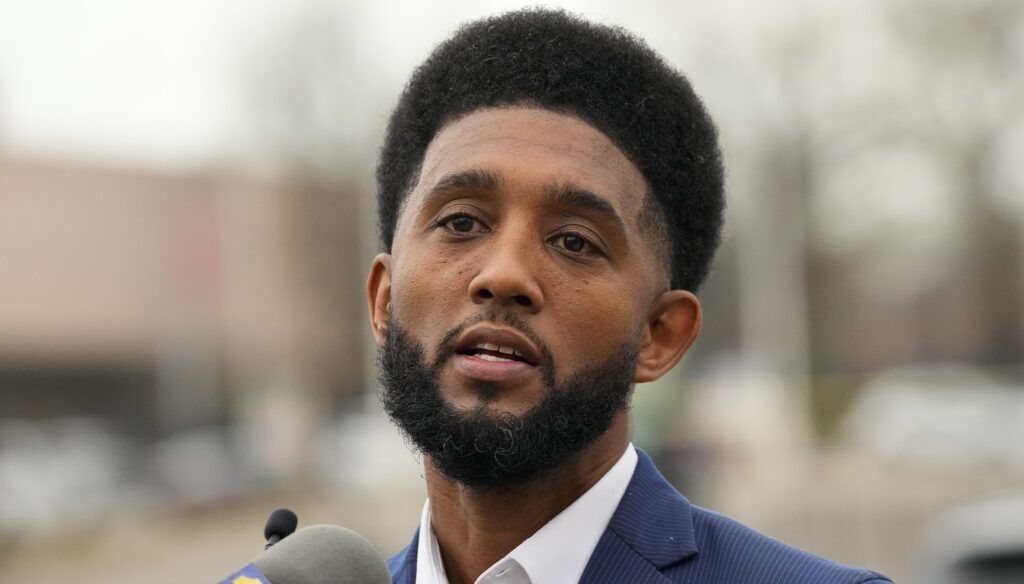Colorado voters set to weigh in on presidential preferences on Super Tuesday
Colorado voters finish casting ballots today in the state’s presidential primary, joining 15 other states and a territory voting on Super Tuesday.
In place since the late 1980s, it’s called Super Tuesday because it’s the busiest day on the primary election calendar, with more delegates at stake than at any other point on the road to the White House – roughly one-third of the total delegates available and nearly enough for the two frontrunners to lock down the nomination.
Democratic President Joe Biden and Republican former President Donald Trump have dominated early nominating contests, though Trump is facing a spirited challenge from former South Carolina Gov. Nikki Haley, who notched her first primary win on Saturday – in the District of Columbia – and was the only presidential candidate to campaign in Colorado ahead of the election.
The U.S. Supreme Court on Monday removed a big question mark that had surrounded Colorado’s presidential primary by issuing a unanimous decision that kept Trump on the state ballot, overturning a December ruling by the Colorado Supreme Court that removed Trump under a constitutional provision barring candidates who have engaged in an insurrection.
While both major parties’ ballots are crowded, most of the listed candidates suspended their campaigns by the time Colorado’s 3.8 million active registered voters began receiving ballots in the mail nearly three weeks ago.
In addition to Trump and Haley, the state’s GOP primary ballot includes Florida Gov. Ron DeSantis, former New Jersey Gov. Chris Christie, Ohio entrepreneur Vivek Ramaswamy, former Arkansas Gov. Asa Hutchinson and Texas businessman Ryan Binkely, who all ended their campaigns after voting began in January.
The Democratic ballot features Biden and a handful of long-shot candidates whose campaigns are still active, including Minnesota Rep. Dean Phillips and self-help author Marianne Williamson. Others who qualified for the Democratic primary are Jason Michael Palmer, Gabriel Cornejo, Frankie Lozada, Stephen P. Lyons and Armando “Mando” Perez-Serrato.
New this year, voters who fill out the Democrats’ ballot will have the option of voting for “Uncommitted Delegate,” which could result in state Democrats sending exactly that to the party’s nominating convention in August. A group of progressive, socialist and pro-Palestinian organizations launched a campaign last week urging Democrats to check the box as a way to register disapproval for the Biden administration’s position supporting Israel’s invasion of Gaza.
Voters have until 7 p.m. to return ballots to their county clerks or to vote in person at voter service centers. Election officials cautioned that it’s too late to put ballots in the mail – ballots must be in hand by the deadline – and should instead be deposited in secure drop boxes, with locations listed at GoVoteColorado.com.
Through noon Sunday, county clerks reported receiving nearly 1 million ballots from Colorado voters, according to the Colorado Secretary of State’s Office. Of the ballots processed at that point, 491,781 were Republican primary ballots, and 347,122 were cast in the Democratic primary, with 120,412 still in process.
Like in Colorado’s congressional and state-level primary – this year scheduled for June 25 – unaffiliated voters received both major parties’ ballots in the mail but can only vote and return one of them. According to a breakdown provided by the Secretary of State’s Office, unaffiliated voters have cast more than twice as many ballots in the GOP primary than they have in the Democratic primary.
Unlike Colorado’s 2020 presidential primary, when almost every major candidate filled arenas and hotel ballrooms in the weeks ahead of Super Tuesday, however, the state has seen little campaigning this year.
Haley held a rally for supporters in Centennial on Feb. 27, marking the only Colorado appearance in recent months by a presidential candidate, though both Trump’s and Biden’s campaigns were mounting aggressive get out the vote efforts with phone calls and text messages, according to volunteers.
Tuesday’s biggest prizes this year are California and Texas, with North Carolina, Virginia, Massachusetts and Minnesota all yielding more delegates than Colorado, which stands to supply roughly 5% of the total delegates awarded on Super Tuesday.
Colorado election officials say they plan to start reporting results soon after polls close, though it’s unknown whether delegate allocations will be clear right away, especially if either primary is close. That’s because both Republicans and Democrats apportion most of their delegates by congressional district under complicated formulas that could take a day or two to sort out, party officials said.

[related_articles]







